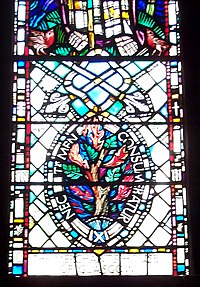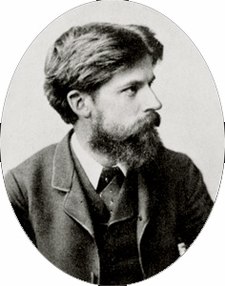Portal:Scotland
| Main Page | Selected articles 1 | Selected articles 2 | Selected biographies | Selected quotes | Selected pictures | Featured Content | Categories & Topics |
Introduction
 |

|
|

| ||
Scotland (Scots: Scotland; Scottish Gaelic: Alba) is a country that is part of the United Kingdom. It contains nearly one-third of the United Kingdom's land area, consisting of the northern part of the island of Great Britain and more than 790 adjacent islands, principally in the archipelagos of the Hebrides and the Northern Isles. To the south-east, Scotland has its only land border, which is 96 miles (154 km) long and shared with England; the country is surrounded by the Atlantic Ocean to the north and west, the North Sea to the north-east and east, and the Irish Sea to the south. The population in 2022 was 5,439,842 and accounts for 8% of the population of the UK. Edinburgh is the capital and Glasgow is the largest of the cities of Scotland.
The Kingdom of Scotland emerged as an independent sovereign state in the 9th century. In 1603, James VI inherited the Kingdom of England and the Kingdom of Ireland, forming a personal union of the three kingdoms. On 1 May 1707 Scotland and England combined to create the new Kingdom of Great Britain, with the Parliament of Scotland subsumed into the Parliament of Great Britain. In 1999 a Scottish Parliament was re-established, and has devolved authority over many areas of domestic policy. The country has a distinct legal system, educational system, and religious history from the rest of the UK, which have all contributed to the continuation of Scottish culture and national identity. Scottish English and Scots are the most widely spoken languages in the country, existing on a dialect continuum with each other. Scottish Gaelic speakers can be found all over Scotland, however the language is largely spoken natively by communities within the Hebrides. The number of Gaelic speakers numbers less than 2% of the total population, though state-sponsored revitalisation attempts have led to a growing community of second language speakers.
The mainland of Scotland is broadly divided into three regions: the Highlands, a mountainous region in the north and north-west; the Lowlands, a flatter plain across the centre of the country; and the Southern Uplands, a hilly region along the southern border. The Highlands are the most mountainous region of the British Isles and contain its highest peak, Ben Nevis, at 4,413 feet (1,345 m). The region also contains many lakes, called lochs; the term is also applied to the many saltwater inlets along the country's deeply indented western coastline. The geography of the many islands is varied. Some, such as Mull and Skye, are noted for their mountainous terrain, while the likes of Tiree and Coll are much flatter. (Full article...)
Selected article

The Church of Scotland (Scots: The Kirk o Scotland; Scottish Gaelic: Eaglais na h-Alba) is a Presbyterian denomination of Christianity that holds the status of the national church in Scotland. It is one of the country's largest, having 259,200 members in 2023. While active membership in the church has declined significantly in recent decades (in 1982 it had nearly 920,000 members), the government Scottish Household Survey found that 20% of the Scottish population, or over one million people, identified the Church of Scotland as their religious identity in 2019. The Church of Scotland's governing system is presbyterian in its approach, therefore, no one individual or group within the church has more or less influence over church matters. There is no one person who acts as the head of faith, as the church believes that role is the "Lord God's". As a proper noun, the Kirk is an informal name for the Church of Scotland used in the media and by the church itself.
The Church of Scotland was principally shaped by John Knox, in the Reformation of 1560, when it split from the Catholic Church and established itself as a church in the Reformed tradition. The church belongs to the Presbyterian tradition of Reformed Christianity (Calvinism), having no head of faith or leadership group and believing that God invited the church's adherents to worship Jesus.
The Church of Scotland celebrates two sacraments, Baptism and the Lord's Supper, as well as five other ordinances, such as Confirmation and Matrimony. The church adheres to the Bible and the Westminster Confession of Faith, and is a member of the World Communion of Reformed Churches. The annual meeting of the church's general assembly is chaired by the Moderator of the General Assembly of the Church of Scotland. (Full article...) Read more ...
Selected quotes
" ... It's a small world, but I wouldn't want to have to paint it ... "
" ... Did not strong connections draw me elsewhere, I believe Scotland would be the country I would choose to end my days in ... "
In the news

- 7 May 2024 – Premiership of John Swinney
- The Scottish Parliament votes to elect John Swinney as First Minister of Scotland with 64 votes in favour and seven abstentions from the Scottish Greens. (BBC News)
- 6 May 2024 – 2024 Scottish National Party leadership election
- John Swinney is elected leader of the Scottish National Party following the resignation of First Minister Humza Yousaf. (The Guardian)
- 4 May 2024 – International reactions to the Israel–Hamas war
- Palestinian doctor and rector at the University of Glasgow Ghassan Abu-Sittah is denied entry into France after landing at Charles de Gaulle airport on his way to speak at the French Senate. Last month, he was denied entry into Germany. (Al Jazeera)
- 1 May 2024 – 2024 Scottish government crisis
- The Scottish National Party administration survives the vote of no confidence earlier this week, prompting the party to seek a replacement for outgoing First Minister Humza Yousaf. (Al Jazeera)
- 29 April 2024 – 2024 Scottish government crisis
- Ahead of a planned vote of no confidence, Scottish First Minister Humza Yousaf announces that he will resign from office. (CNBC) (The New York Times)
- 25 April 2024 – 2024 Scottish government crisis
- Premiership of Humza Yousaf
Selected biography

Sir Patrick Geddes FRSE (2 October 1854 – 17 April 1932) was a Scottish biologist, sociologist, Comtean positivist, geographer, philanthropist and pioneering town planner. He is known for his innovative thinking in the fields of urban planning and sociology. His works contain one the earliest examples of the 'think globally, act locally' concept in social science.
Following the philosophies of Auguste Comte and Frederic LePlay, he introduced the concept of "region" to architecture and planning and coined the term "conurbation". Later, he elaborated "neotechnics" as the way of remaking a world apart from over-commercialization and money dominance.
An energetic Francophile, Geddes was the founder in 1924 of the Collège des Écossais (Scots College), an international teaching establishment in Montpellier, France, and in the 1920s he bought the Château d'Assas to set up a centre for urban studies.
Selected picture
The Bruichladdich distillery is a distillery on the Rhinns of the isle of Islay in Scotland. The distillery produces mainly single malt Scotch whisky, but has also offered artisanal gin.
Photo credit: Bdcl1881
Did You Know...

- ... that raptor persecution is a crime against birds of prey, and in Scotland, ravens are afforded honorary raptor status?
- ... that Brigadier Archie Miller-Bakewell registered the death of Prince Philip, Duke of Edinburgh?
- ... that George Parks was president of the Royal College of Surgeons in Ireland and his son Rowan Parks became president of the Royal College of Surgeons of Edinburgh?
- ... that backgammon was derived from the esteemed 16th-century Scottish and English tables game of Irish and eventually surpassed it in popularity?
- ... that Colonel Hugh Pettigrew observed that troops who thought that the Scottish Highlands resembled Waziristan on India's North West Frontier were "of little use to anyone"?
- ... that despite his defeat at the battle of Pitgaveny, both of Duncan's sons would later rule Scotland?
- ... that Thomas Fairfax, Lord General of the New Model Army, resigned his commission rather than invade Scotland in 1650?
- ... that William of Littlington opposed the division of England and Scotland into two Carmelite provinces in 1303, was excommunicated, and did four years' penance in Paris?
Get involved
For editor resources and to collaborate with other editors on improving Wikipedia's Scotland-related articles, see WikiProject Scotland.
To get involved in helping to improve Wikipedia's Scotland related content, please consider doing some of the following tasks or joining one or more of the associated Wikiprojects:
- Visit the Scottish Wikipedians' notice board and help to write new Scotland-related articles, and expand and improve existing ones.
- Visit Wikipedia:WikiProject Scotland/Assessment, and help out by assessing unrated Scottish articles.
- Add the Project Banner to Scottish articles around Wikipedia.
- Participate in WikiProject Scotland's Peer Review, including responding to PR requests and nominating Scottish articles.
- Help nominate and select new content for the Scotland portal.
Do you have a question about The Scotland Portal that you can't find the answer to?
Post a question on the Talk Page or consider asking it at the Wikipedia reference desk.
Related portals
Other language versions
Associated Wikimedia
The following Wikimedia Foundation sister projects provide more on this subject:
-
Commons
Free media repository -
Wikibooks
Free textbooks and manuals -
Wikidata
Free knowledge base -
Wikinews
Free-content news -
Wikiquote
Collection of quotations -
Wikisource
Free-content library -
Wikispecies
Directory of species -
Wikiversity
Free learning tools -
Wikivoyage
Free travel guide -
Wiktionary
Dictionary and thesaurus







































